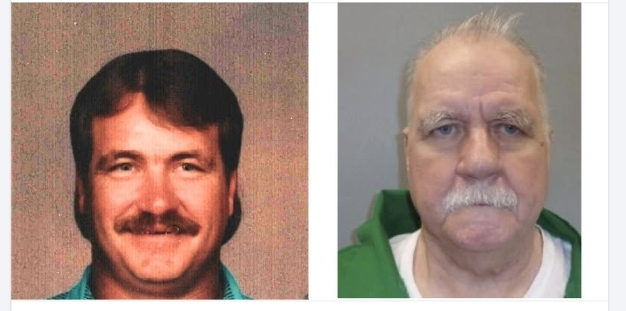
COLUMBIA, S.C. — In a decision that has reignited debates over capital punishment and the methods of execution in the United States, condemned South Carolina inmate Brad Sigmon has chosen to face a firing squad for his scheduled execution next month. If carried out, Sigmon’s death would mark the first time in 15 years that an American inmate has been executed by firing squad, a method that evokes a grim historical resonance and raises profound ethical questions about justice, retribution, and the evolving standards of human dignity.
Sigmon, now 63, was convicted in 2001 for the brutal murders of his ex-girlfriend’s parents, David and Gladys Larke, in Greenville County. The crime, which shocked the local community, was described as a violent outburst fueled by a toxic mix of personal turmoil and untreated mental illness. Sigmon admitted to the killings in court, but his defense team has long argued that his actions were the tragic culmination of a lifetime of trauma. According to his lawyers, Sigmon endured a childhood marked by severe physical abuse and neglect, compounded by an inherited mental illness that was never properly diagnosed or treated. These factors, they contend, were critical to understanding his actions but were never fully presented to the jury during his trial.
In a last-ditch effort to halt the execution, Sigmon’s legal team filed a petition on Thursday, arguing that his original trial counsel failed to adequately present evidence of his mental health struggles and the profound impact of his traumatic upbringing. They assert that this failure violated his constitutional right to a fair trial and that executing him under these circumstances would be a grave miscarriage of justice. The petition also highlights the broader ethical concerns surrounding the use of the firing squad, a method that many view as archaic and inhumane.
South Carolina is one of only a handful of states that still allow executions by firing squad, a method that was largely abandoned in the 20th century in favor of lethal injection. However, a nationwide shortage of the drugs used in lethal injections has forced states to reconsider alternative methods. In 2021, South Carolina passed a law making the electric chair the default method of execution but gave inmates the option to choose a firing squad instead. Sigmon’s decision to select the firing squad underscores the grim reality of this legal framework, as inmates are forced to choose between methods that many consider equally barbaric.
The impending execution has sparked a wave of reactions from advocacy groups, legal experts, and the public. Opponents of the death penalty argue that Sigmon’s case exemplifies the systemic flaws in the capital punishment system, particularly the failure to account for mental illness and trauma in sentencing. They point to a growing body of research showing that individuals with severe mental health issues are often unable to fully comprehend their actions or control their impulses, raising questions about their culpability. On the other hand, proponents of the death penalty argue that the severity of Sigmon’s crimes justifies the ultimate punishment, regardless of his personal history.
As the March 7 execution date approaches, the case has also drawn attention to the broader implications of using a firing squad. Critics argue that the method is inherently cruel and degrading, evoking images of a bygone era when such practices were commonplace. Supporters, however, contend that it is a more reliable and humane alternative to lethal injection, which has been marred by botched executions and prolonged suffering.
The debate over Brad Sigmon’s fate is not just about one man’s life or the method of his execution; it is a reflection of the deeper tensions within the American justice system. It forces us to confront difficult questions about the nature of punishment, the limits of empathy, and the values we hold as a society. As the clock ticks down to March 7, the nation will be watching, waiting to see whether justice will be served—or whether a flawed system will claim another life.